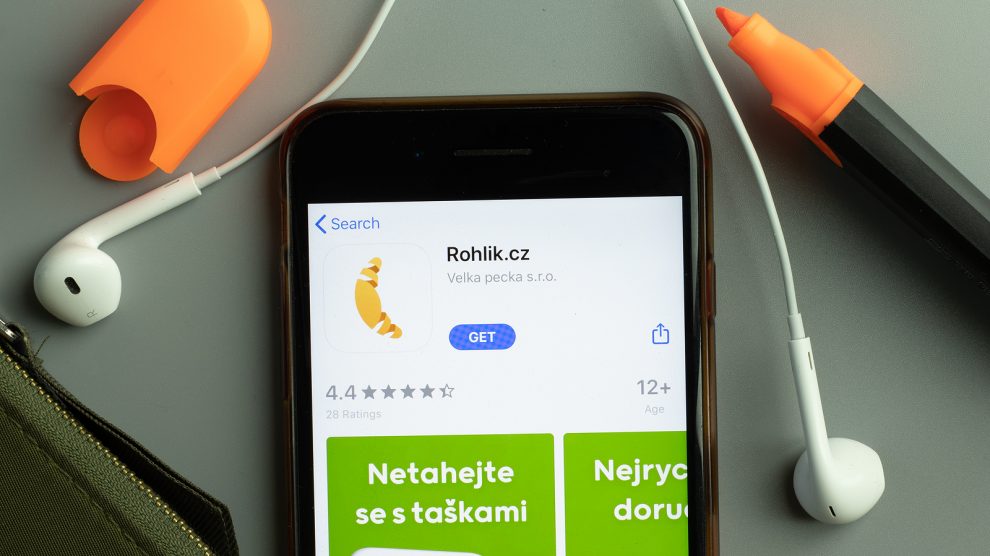Emerging Europe’s start-up scene is thriving: new money and new ideas are coming onto the market all the time. To keep you up to date with the latest investments, innovations, movers and shakers, each Monday Emerging Europe brings you a round-up of the region’s start-up news.
Rohlik: Czech-founded e-grocer raises 220 million euros
Czech e-grocer Rohlik has raised 220 million euros in a Series D funding round led by new investor Sofina.
Existing investors, including Index Ventures and the founder Tomáš Čupr, also participated. The transaction is a strong vote of confidence from investors in Rohlik’s fundamentals, with total funding exceeding 500 million euros. Funds will be used to accelerate tech innovations, including automation of fulfilment centres, electric mobility, and further expansion in existing countries.
“Series D in this tough market is a great achievement for Rohlik and the entire team,” says Čupr. “Without our great people, we wouldn’t be in this position. This raise gives us a chance to emerge as a category winner in the next few years and I am excited about what lies ahead.”
Rohlik is a unique combination of fast and precise delivery, large assortment and great value for money. The company delivers 85 per cent of orders within 90 minutes from order or within 15-minute same-day time windows, has 17 000 items in its assortment, and its prices are in line with brick-and-mortar competition.
The offering combines well-priced private brands, locally sourced goods from small farmers and producers and top international brands. Fresh produce represents about 40 per cent of sales, more than most competitors.
The company operates in Prague (rohlik.cz), Budapest (kifli.hu), Vienna (gurkerl.at), Munich, Frankfurt (knuspr.de) and will be soon be launched in Hamburg, Milan (sezamo.it), Bucharest (sezamo.ro) and Madrid (sezamo.es).
Already serving more than one million active customers, revenues reached 500 million euros last year. The group is profitable in Czechia since 2018 and in Hungary since 2021.
Vercom: Polish CPaaS frim completes MailerLite acquisition
Polish firm Vercom, which provides cloud-based solutions in the CPaaS (Communication Platform-as-a-Service) model, has completed its acquisition of MailerLite, a global provider of email communication tools.
With the acquisition, Vercom becomes a global player in the CPaaS market delivering services to nearly 57,000 customers in 180 countries. The value of the transaction was approximately 400 million złoty, which means that the acquisition of MailerLite is one of the largest transactions made by a Polish technology company in recent years. At the same time, Vercom acquired Oxylion, which will enable it to expand its service offering by adding a voice channel.
“This acquisition allows us to compete with the best players in the industry, such as Twilio or Sinch,” says Krzysztof Szyszka, CEO of Vercom.
Vercom develops global cloud communications platforms that empower companies to build and grow lasting relationships with their audiences across multiple communication channels.
Solutions offered by Vercom enable companies to automate and scale communication processes, while maintaining high deliverability and efficiency – all in a secure and reliable manner.
Currently, around 20,000 companies use Vercom’s services, including IKEA, American Express, DHL, Coca-Cola and BNP Paribas.
Vercom is listed on the Warsaw Stock Exchange and is included in the sWIG80 index.
NFTPort: Estonian NFT infrastructure start-up closes Series A round
Aiming to develop infrastructure that will underpin the NFT market, Tallinn-based NFTPort has closed its Series A funding at 24.9 million euros, co-led by Taavet+Sten and Atomico, a European venture capital firm with four billion euros in assets under management.
The funding will help NFTPort scale its core product, which helps developers quickly launch NFT applications.
“When a company decides to build their NFT infrastructure today, it would either have to expend significant sums of money for scarce web3 developers, or invest time upskilling a web2 developer to carry out the work,” says NFTPort founder Johannes Tammekänd.
“Managing constantly evolving blockchain technology quickly becomes a multi-million dollar problem for most companies wishing to build their own NFT infrastructure; like accepting payments online pre-Stripe or building a tech-based product pre-cloud.”
NFTPort infrastructure includes application programming interfaces (APIs) for data, minting and counterfeit detection. Data APIs provide access to NFT data from the Ethereum, Polygon and Solana blockchains. Minting APIs let developers deploy, manage and customise NFT smart contracts without writing any smart contract code. The counterfeit detection interface cross-checks that an NFT wasn’t previously minted on any of the supported blockchains.
Unlike many news and information platforms, Emerging Europe is free to read, and always will be. There is no paywall here. We are independent, not affiliated with nor representing any political party or business organisation. We want the very best for emerging Europe, nothing more, nothing less. Your support will help us continue to spread the word about this amazing region.
You can contribute here. Thank you.



